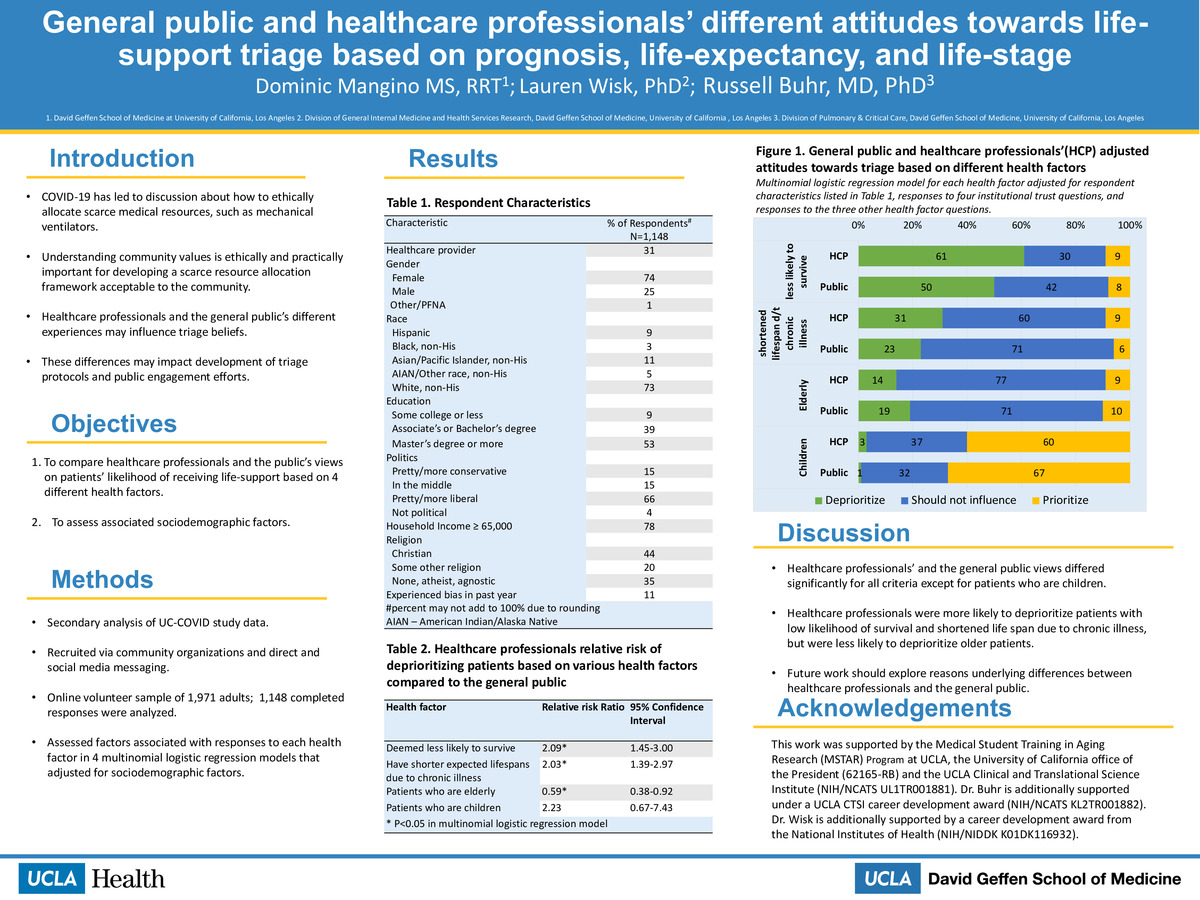-
Author
Dominic Mangino -
PI
Russell Buhr, MD, PhD
-
Co-Author
Lauren Wisk, PhD; Russell Buhr, MD, PhD
-
Title
General public and healthcare professionals’ different attitudes towards life-support triage based on prognosis, life-expectancy, and life-stage
-
Program
Medical Student Training in Aging (MSTAR) Research Program
-
Other Program (if not listed above)
-
Abstract
Importance: There is controversy regarding which factors should guide resource allocation decisions during triage. Healthcare professionals (HCP) and the general public’s different experiences may influence beliefs and be relevant to development and implementation of triage protocols.
Objective: To compare HCP and the public’s views on how health factors should influence patients’ likelihood of receiving life-support in triage and assess related factors.
Design, Settings, and Participants: Secondary analysis of UC-COVID data. We analyzed responses from an online volunteer sample of 1,148 participants recruited from community organizations and direct media messaging. Survey fielded from May-September, 2020.
Main outcome measures: How likely patients should be to receive life support, rated on a Likert scale, from 1 (should be much less likely) to 9 (should be much more likely). Factors assessed included patients who (1) are deemed less likely to survive (2) have shorter expected lifespans, (3) are elderly, and (4) are children. Multinomial logistic regression models were created for each factor.
Results: In adjusted analysis, sixty-one percent of HCPs and 50% of the public deprioritized patients less likely to survive. A majority (60% HCP, vs 71% public) equally prioritized patients with shorter life expectancy, but HCPs more often deprioritized (31% HCP, vs and 23% public). Most (77% HCPs, vs 71% public) prioritized older patients equally. The public deprioritized older patients more (19% vs 14%). Ninety-eight percent of respondents prioritized children or prioritized them equally.
Conclusions and Relevance:
HCP and the public view some criteria differently. Future work should explore reasons underlying differences that may influence drafting and implementation of triage policies.
-
PDF
-
Zoom
https://uclahs.zoom.us/j/95053273242?pwd=WUI2YWtJYUpEN3JXWGlxckt4OFBNZz09

